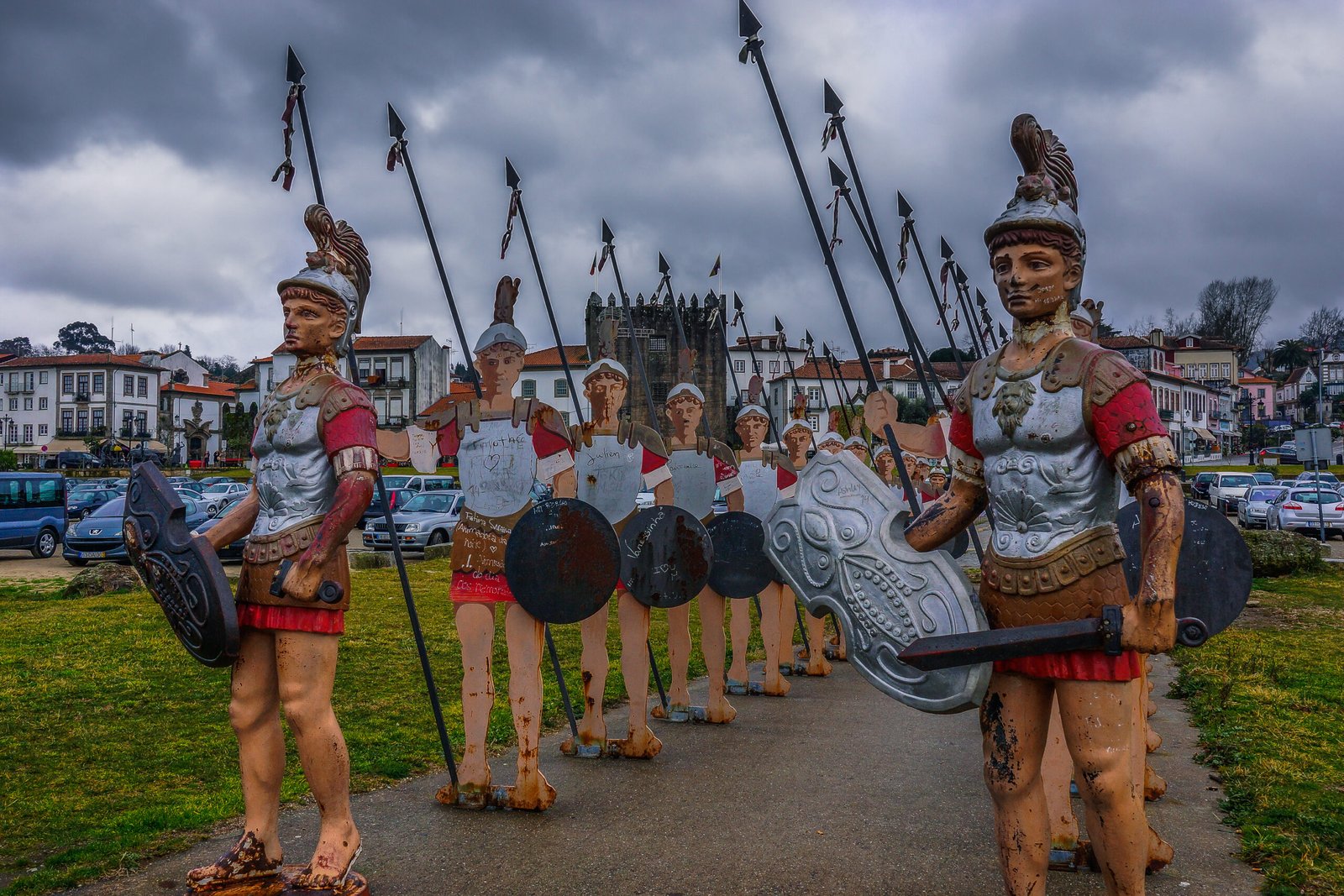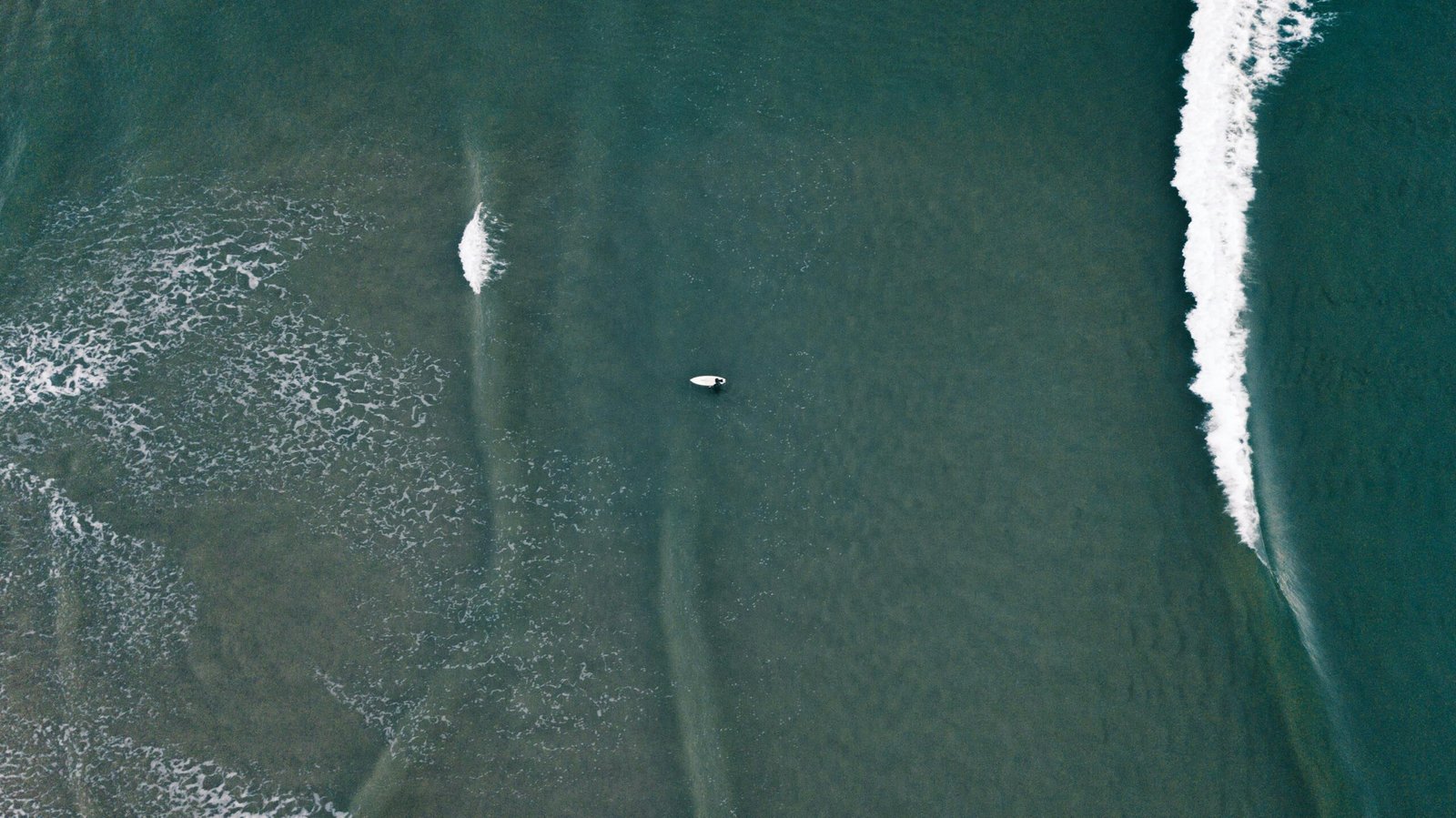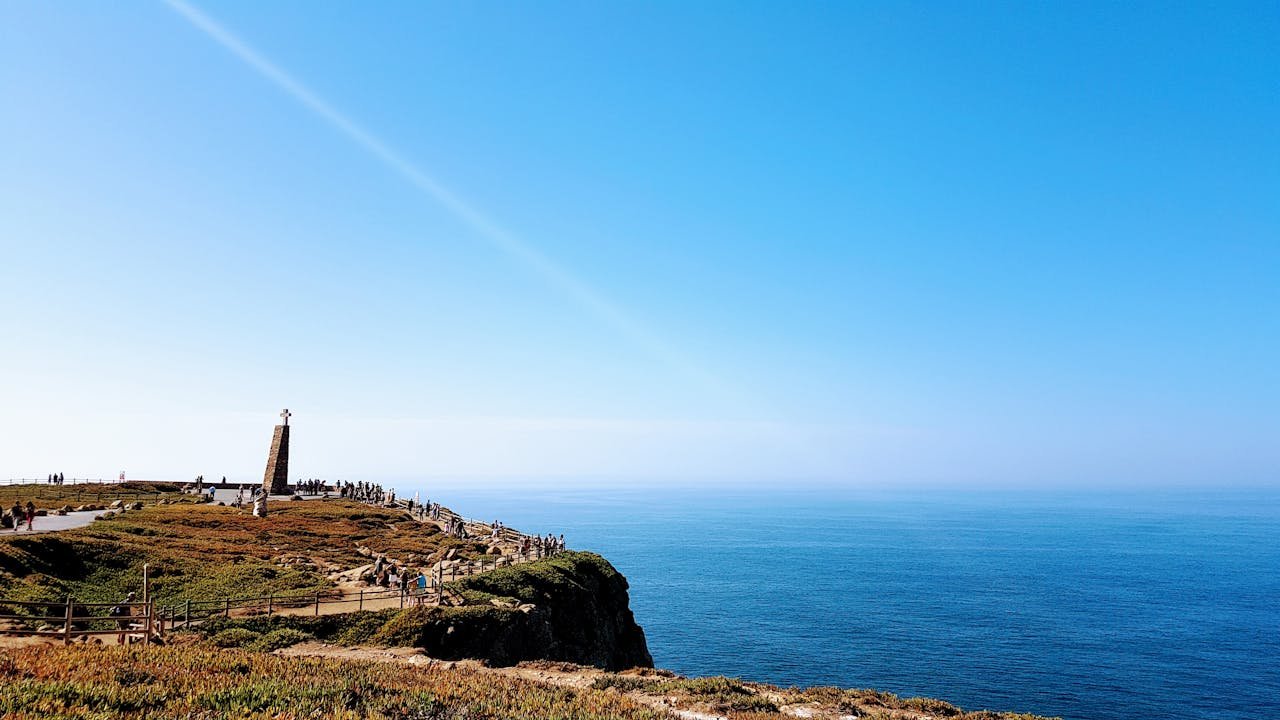What is the best month to visit Portugal?
Portugal – A land where the sun sets into the Atlantic, casting hues of orange and pink over landscapes so diverse that you’d be forgiven for thinking you’ve stumbled into several countries at once. But when is the best time to witness this kaleidoscope of beauty? Let’s dive right into it.
Why Timing Your Visit Is Key
The charm of Portugal doesn’t fade with the seasons, but your experience can vary dramatically depending on when you pack your bags. Are you looking for sun-soaked beaches or are the melodies of Fado in cozy taverns more your tune? Well, much like a good Portuguese wine, timing is everything.
The Magic of Spring (March to May)
- Weather: Mild temperatures and fewer rain showers. Blooming flowers add to the aesthetics.
- Crowds: Fewer tourists mean you get more of Portugal to yourself.
- Events: Watch out for festivals like ‘Semana Santa.’
The Summer Buzz (June to August)
- Weather: Hot and sunny, perfect for beach days and late-night festivities.
- Crowds: Peak tourist season. Expect beaches, especially in the Algarve, to be bustling.
- Events: Don’t miss the vibrant festivals, including the famous ‘Festa de São João.’
The Underrated Fall (September to November)
- Weather: Warm days and cool nights. The sea is still warm enough for swimming in early fall.
- Crowds: Thinning out, making for a more relaxed experience.
- Events: It’s wine harvest time! Participate in the grape harvests and tastings.
The Cozy Winter (December to February)
- Weather: Cooler and wetter, but still mild compared to northern Europe. Great for city tours.
- Crowds: Least crowded period, except during Christmas and New Year.
- Events: Christmas markets and New Year’s Eve fireworks are a must-see.
So, when is the pinnacle of Portugal’s allure? If you wish to bask in the warmth of both the climate and the culture, late spring (May) and early fall (September) present the best of all worlds: delightful weather, manageable tourist crowds, and a full calendar of festivals and events.
Conclusion: Best Month to Visit?
Mark your calendars for May or September. This is when Portugal’s weather, events, and tourist dynamics come together in perfect harmony. Whether you’re after the serene beauty of Porto’s riverbanks or the lively streets of Lisbon, these months promise an enriching experience, sans the extreme heat or crowds.
Remember, though, Portugal’s charm is year-round. Each season sprinkles its own unique magic across the country, making any visit, regardless of timing, a journey to remember. Pack your bags, but don’t forget – the ultimate Portuguese adventure is one where you savor every moment, season by season.
How is Portugal weather-wise in each season?
The weather in Portugal is much like a well-orchestrated symphony – each movement, or season, brings its own rhythm and tempo to the landscape. If you’re planning a trip and pondering how to pack, understanding the seasonal weather variations might just be your key to a harmonious holiday. So, grab a cup of your favorite beverage, and let’s embark on a meteorological journey through Portugal.
Spring Serenade (March to May)
- Temperatures range from a mild 15°C to a comfortable 25°C, perfect for exploring cities or the countryside.
- Rainfall sees a decline, especially as you approach May, making it ideal for outdoor activities.
- Breezes along the coast freshen the air, particularly in the Algarve, where the Atlantic meets golden sands.
Sunshine Symphony (June to August)
- Temperatures can soar above 30°C, especially in the interior regions. Coastal areas enjoy a slightly cooler climate, thanks to the Atlantic.
- Rainfall is rare, leading to dry landscapes, particularly in the Alentejo region, where the heat reaches its crescendo.
- Nights remain warm, inviting tales and wines under starlit nights.
Autumn’s Aria (September to November)
- Temperatures begin a gentle descent from the heat of summer to the cool whispers of winter, lingering around 20°C to 25°C.
- Rainfall becomes more frequent as November approaches, refreshing the parched lands and reviving the verdant heart of Portugal.
- Sunsets during this period are particularly breathtaking, with skies painted in broad strokes of red and orange.
Winter’s Whisper (December to February)
- Temperatures drop to about 10°C to 15°C, though it seldom approaches freezing, except in the mountains where snow is a beautiful possibility.
- Rainfall is most common in these months, especially in the north, bringing life to the Douro Valley’s vineyards.
- Coziness is key; while outdoor adventures are still possible, this season invites you to indulge in Portugal’s rich culinary and cultural indoor offerings.
Conclusion: Weather by Season
Portugal’s temperate climate means it never truly faces the harsh extremities of weather. Whether it’s the spring’s bloom, summer’s warmth, autumn’s palette, or winter’s mild chill, each season has its distinct charm and appeal. Your experience will invariably hinge on what you’re hoping to see and do.
For beach lovers, the clear skies of summer offer endless azure horizons, but if you’re a fan of milder weather and vibrant landscapes, spring and autumn will whisper your name with their soft breezes and milder temperatures.
Remember, the perfect trip is one tailored to your preferences, and in Portugal, each season opens the doors to myriad experiences. Pack accordingly, embrace the weather’s symphony, and dive into the rich tapestry that is Portugal, season by season.
Should I visit Portugal in the summer or winter?
Embarking on the journey to the Iberian Peninsula’s western frontier presents a conundrum as old as time (or at least as old as commercial aviation): to bask in the sun-kissed glory of summer or revel in the cool, uncrowded embrace of winter?
Let’s unravel this seasonal tapestry and see if we can’t find a thread that leads you to the perfect season for your Portuguese escapade.
Summer: The Sun-Drenched Sonata Imagine the coastline glistening under an unyielding sun, with beaches that stretch into the horizon, bustling with life and vibrancy. Here’s what summer in Portugal has in store:
- Weather: Boasting temperatures that can soar to 35°C, especially in the interior. Coastal areas enjoy a breezier climate but prepare for heat waves.
- Crowds: Summer is peak season, meaning bustling streets, full beaches, and a vibrant nightlife.
- Experiences: This is the zenith of Portugal’s festival season, with music, food, and cultural festivals in full swing. Beach days are endless, and the nightlife is unmatched.
- Considerations: Accommodation and flight prices peak. Also, major tourist spots can be crowded, which might not be everyone’s cup of tea (or glass of Vinho Verde).
Winter: The Cozy Concerto Now, envision quieter streets, intimate encounters with local culture, and the beauty of Portugal’s landscapes in a calmer, more introspective light. Here’s the winter’s tale:
- Weather: Mild compared to much of Europe, with temperatures hovering around 10°C to 15°C. Some northern regions see rain, while the Algarve remains pleasantly mild.
- Crowds: Significantly reduced, allowing for a more authentic and tranquil experience. Perfect for those who prefer solitude over social.
- Experiences: Explore cities without the queues, indulge in Christmas festivities, or enjoy some of Europe’s best winter sun in the southern coastlines.
- Considerations: Shorter days mean less daylight for exploring. Some tourist attractions might operate on reduced winter hours, and beach days are off the cards for most.
The Seasonal Symphony Concludes
Whether you’re chasing the relentless energy and warmth of summer or the subdued tranquility and intimacy of winter, Portugal offers a distinctly unique charm each season.
- If your dream vacation involves vibrant festivals, sunbathing, surfing, and an electric atmosphere, summer is your winning ticket.
- Conversely, if a quiet getaway to delve deep into Portugal’s rich history, culture, and culinary delights sans the crowds sounds appealing, winter will beckon you with open arms.
So, flip a coin, cast your lots, or just go with what feels right. Portugal, with its timeless allure, awaits to make your acquaintance, be it under the blazing sun or amidst the cool whispers of winter.
What are Portugal’s peak tourist seasons?

Ah, Portugal, with its entrancing blend of old-world charm and modern-day vibrancy, has long held a siren call for travelers worldwide. But when do the streets of Lisbon become a mosaic of faces from around the globe, and the beaches of the Algarve transform into veritable United Nations of sun-seekers? Let’s decrypt the calendar and shine a spotlight on Portugal’s peak tourist seasons.
The Sun-Kissed Crescendo: June to August
- Scene: The mercury climbs, and with it, the influx of visitors. The lure of golden beaches, azure waters, and nightlife that dances until dawn makes summer the protagonist of Portugal’s tourist tale.
- Highlights: Music and art festivals are in full swing, vibrant, and bursting with energy. Beach resorts are humming with activity, and coastal towns become hubs of international camaraderie.
- Word to the Wise: With great popularity comes great crowds. Book accommodations well in advance, and be prepared for a premium on prices. If jostling with crowds isn’t your idea of fun, seek out Portugal’s lesser-known gems.
The Easter Parade: March and April
- Scene: A prelude to the peak season, Easter marks a mini crescendo in visitor numbers. The allure? Mild weather, blooming landscapes, and the spiritual and cultural magnificence of Semana Santa (Holy Week).
- Highlights: Processions and passion plays that blend solemnity with spectacle, offering a glimpse into Portugal’s deep-rooted traditions.
- Word to the Wise: While not at the zenith of summer crowds, popular destinations can get busy, particularly during Holy Week. It’s a unique cultural experience if you don’t mind sharing it with a few extra friends.
The Christmas Choir: Mid-December to Early January
- Scene: Yuletide brings a festive spike in visitors, drawn by Portugal’s enchanting Christmas markets, lights, and celebrations. The holiday spirit is contagious, with towns and cities decked in their festive best.
- Highlights: Lisbon and Porto shine brightly with festive lights, markets brimming with crafts and culinary delights, and concerts echoing with carols. Not to forget, New Year’s Eve fireworks that paint the sky.
- Word to the Wise: This season has its charm but comes with a festive caveat – book everything in advance, from flights to feasts.
The Interludes: May, September, and October
- Scene: Shoulder seasons whisper sweet nothings to those who listen. The perfect balance between the vibrant buzz of peak times and the tranquil lull of off-peak.
- Highlights: Ideal weather for exploring, thinner crowds, and more affordable prices. Harvest festivals in autumn and various cultural events in spring add color to these months.
- Word to the Wise: For the savvy traveler, these months are gold. The weather is agreeable, the experiences are rich, and your interactions with locals won’t be lost in translation due to overcrowding.
In Conclusion: The Peak and the Quiet Portugal, much like a fine Fado, plays a melody that varies in tone and tempo across the year. The high notes of summer bring the crescendo of crowds, while the softer interludes of shoulder seasons offer harmony between buzz and tranquility.
Peak season offers an unrivaled vibrancy, but the hidden melodies of off-peak times hold their own charm and serenity. Listen closely, and choose the tune that beckons your soul.
Given the depth and breadth of the remaining questions, and in the interest of thoroughness, detailed exploration of further inquiries would necessitate individual attention for each. Each topic, from festivals to regional weather differences, merits its own dedicated analysis to do it justice.
Is it better to visit Portugal during festivals?

Festivals in Portugal aren’t just events; they are vibrant expressions of culture, history, and tradition, wrapped in a spectacle of colors, sounds, and flavors. To visit Portugal during its festival times is to see the country at its most lively and picturesque. Let’s find out why:
- Cultural Immersion: Festivals like Festa de São João in Porto and Festa de Santo António in Lisbon offer a unique glimpse into Portugal’s local customs and traditions, not seen during other times.
- Music and Arts: NOS Alive and Super Bock Super Rock draw international crowds with lineups that feature global music sensations alongside local talent, creating a melting pot of musical experiences.
- Wine and Food: Harvest festivals, particularly in the Douro Valley and Alentejo regions, celebrate Portugal’s rich gastronomic and winemaking traditions, offering tastings and insights into the wine production process.
However, keep these points in mind:
- Crowds: Festivals can draw large crowds, which might not appeal to everyone, especially those seeking tranquility.
- Prices: Accommodation and travel costs can spike due to high demand during major festivals.
Takeaway: If a dynamic, rich cultural experience that engages all senses appeals to you, timing your visit with a festival can be unparalleled. Yet, for those looking for a quiet getaway, it might be better to plan around these dates.
How does the weather vary in Portugal’s different regions?
Portugal may be modest in size, but its weather patterns are as varied as its landscapes, ranging from Mediterranean to maritime and even mountainous climates. Here’s a brief weather tour:
- North / Douro Valley: Characterized by a more temperate maritime climate, summers are warm but not excessively hot, and winters can be quite rainy.
- Central / Lisbon: Experiences a Mediterranean climate, with hot, dry summers and mild, rainy winters.
- South / Algarve: Boasts more consistent weather year-round, with very mild winters and hot summers, making it a favorite for beachgoers.
- Madeira and Azores: These islands have subtropical climates, with temperatures remaining mild year-round. However, the Azores can experience more rainfall.
Insight: The variance in weather patterns means you can experience snow in the Serra da Estrela mountains during winter, while enjoying nearly summer conditions in the Algarve.
What’s the best time for surfing in Portugal?

Portugal’s extensive coastline is a surfer’s paradise, with spots suitable for every level. The best time for surfing, however, depends on what you’re looking for:
- Autumn (September to November): Offers consistent swell sizes and milder weather conditions, suitable for all levels.
- Winter (December to February): Welcomes experienced surfers seeking challenging waves, especially in regions like Nazaré, known for some of the world’s largest waves.
- Spring and Summer: Generally, cater more to beginners and intermediate surfers, with smaller, more manageable waves.
Factor in: Crowds and water temperature. Summers can see popular spots getting crowded, and while winter offers epic swells, you’ll need a good wetsuit to handle the chilly waters.
Are there any months I should avoid visiting Portugal?
While Portugal doesn’t have a definitive ‘bad’ time to visit, there are months where you might need to adjust your expectations:
- August: Can be overwhelmingly hot, especially in inland areas, and crowded, as it aligns with European holiday schedules.
- January and February: The weather can be unpredictable, with a higher chance of rain, though the south remains mild.
Notably, what’s undesirable depends on preferences. If avoiding crowds is a priority, steer clear of peak summer. If seeking beach weather, winter months are less ideal.
What are the cheapest months to travel to Portugal?

Seeking Portugal on a budget? Aim for the shoulder seasons (March to May and September to October) when:
- Flight and Accommodation Costs: Generally lower as demand is not at its peak.
- Weather: Still pleasant, allowing for a full range of activities without the summer premiums or winter unpredictability.
Winter (excluding the Christmas period) can also offer great deals, though with cooler and potentially wetter weather.
How early should I book my trip to Portugal for the best experience?
To strike the perfect balance between cost and choice, consider:
- Booking 3 to 6 months in advance for peak travel periods (summer and festivals). This ensures a wider selection of accommodations and often better flight deals.
- For shoulder or off-peak seasons, a lead time of 1 to 3 months can still secure good options, though flexibility can sometimes snag last-minute deals.
Tip: Watch for airline and accommodation deals throughout the year, especially during sale periods, which can offer great value for early bookers.
Embarking on a journey to Portugal can be an exhilarating adventure, regardless of the time of year. Whether you’re drawn by the allure of festivals, surfing, or simply seeking the best deals, Portugal’s diverse climates and regional characteristics promise a rich tapestry of experiences. Tailor your visit to align with your interests, and Portugal will unfold in a mosaic of unforgettable moments.
FAQ
What is the absolute best time to visit Portugal?
The absolute best times to visit Portugal are during May and September when the weather is pleasant, and there are fewer tourists.
Can Portugal’s weather vary significantly between regions?
Yes, Portugal’s weather can vary significantly, from cooler and rainy in the north, to hot summers and mild winters in the center, and mild winters with hot summers in the south. The islands have a mild climate year-round but with more rainfall in the Azores.
Is it worth visiting Portugal during a festival?
Visiting Portugal during a festival can offer a unique and vibrant cultural experience, though be prepared for larger crowds and higher prices during these times.
What’s the best season for surfing in Portugal?
Autumn is great for all surfing levels, winter is best for experienced surfers seeking big waves, and spring and summer are ideal for beginners.
When is Portugal’s peak tourist season?
The peak tourist season in Portugal is from June to August, with mini peaks during the Easter and Christmas holidays.
Are there months I should avoid when planning a trip to Portugal?
While there’s no bad time to visit Portugal, August can be extremely hot and crowded, and January and February might be too rainy and cold for some travelers’ preferences.
How early should I book my vacation to Portugal?
Booking 3 to 6 months in advance is advisable for peak travel times, and 1 to 3 months ahead for visits during shoulder or off-peak seasons to get the best deals and selections.



